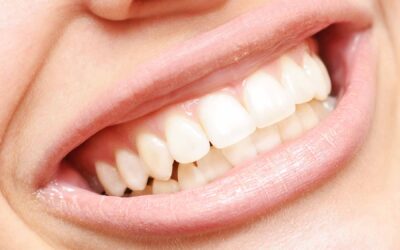People of all ages experience tooth sensitivity, which is a typical oral health issue. While tooth sensitivity is frequently linked to adult dental problems like enamel degradation or gum recession, it can also affect kids. In order to preserve children’s smiles and ensure their comfort, it is crucial to understand the origins, symptoms, and treatments available from a dentist near you.
What is Tooth Sensitivity?
People who have tooth sensitivity feel pain or discomfort in their teeth when they come into touch with particular stimuli, such as hot or cold temperatures, sweet or acidic meals, or even during cleaning or flossing. People of all ages, including children, might be affected by this common dental problem.
Typically, the outer layer of the tooth, called enamel, protects the underlying layers of the tooth, including the dentin and the nerve center known as the pulp. However, in cases of tooth sensitivity, the protective layer of enamel becomes thinner or compromised, exposing the dentin or nerve endings to external stimuli.
The dentin contains tiny tubules that connect to the nerve endings within the tooth. When these tubules are exposed, they allow sensations, such as temperature or pressure changes, to reach the nerves, resulting in sensitivity and discomfort.
Reasons For Tooth Sensitivity in Kids
1. Thinning Enamel: Children’s teeth have thinner enamel compared to adults. This means that the protective outer layer of their teeth may be more susceptible to erosion, exposing the sensitive dentin underneath.
2. Tooth Decay: Cavities or tooth decay can lead to tooth sensitivity. When bacteria attack and weaken the tooth structure, it can cause sensitivity to hot, cold, sweet, or acidic foods and drinks.
3. Gum Recession: Gum recession occurs when the gums pull back, exposing the tooth roots. This can happen due to improper brushing techniques, gum disease, or orthodontic treatment. Exposed tooth roots are sensitive and can cause discomfort.
4. Dental Erosion: Consuming acidic foods and drinks, such as citrus fruits, soda, or fruit juices, can gradually wear away the tooth enamel. This erosion can expose the underlying dentin and result in tooth sensitivity.
5. Teeth Grinding (Bruxism): Kids who grind their teeth, especially during sleep, may experience tooth sensitivity. The constant grinding can wear down the enamel, exposing the sensitive dentin.
6. Dental Trauma: Accidents or injuries that affect the teeth can cause sensitivity. Fractured or chipped teeth can expose the nerves, leading to sensitivity and discomfort.
7. Recent Dental Procedures: Some dental treatments, such as dental fillings or orthodontic adjustments, can temporarily cause tooth sensitivity. This sensitivity usually subsides on its own after a short period.
How To Treat Tooth Sensitivity?
Aside from relieving discomfort, treating dental sensitivity requires addressing the underlying cause. The following are some common techniques for handling tooth sensitivity at our dental clinic in Edmonton:
- Desensitizing Toothpaste: Specially formulated toothpaste for sensitive teeth can alleviate sensitivity by blocking sensations from the tooth surface to the nerve.
- Fluoride Treatments: Professional fluoride applications strengthen tooth enamel, repair weakened areas, and reduce sensitivity.
- Dental Sealants: Thin protective coatings on back teeth seal exposed dentin, providing an added defense against sensitivity.
- Addressing Dental Issues: Treatments like fillings, root canal therapy, or gum disease treatment resolve underlying issues contributing to sensitivity.
- Adjustment of Dental Restorations: Poorly fitted dental restorations, such as fillings or crowns, can be adjusted or replaced to alleviate sensitivity.
How to Prevent Tooth Sensitivity in Children
To prevent tooth sensitivity in children, emphasize good oral hygiene practices such as brushing with fluoride toothpaste and a soft-bristled toothbrush at least twice a day, along with daily flossing. Limit their consumption of acidic foods and drinks, and encourage them to rinse their mouths with water after consuming them.
Schedule regular dental check-ups at a pediatric dentist in Edmonton for early detection and prevention of dental issues. By implementing these measures, you can help prevent tooth sensitivity and promote your child’s oral health.
Contact Us at Impression Dental
It is important to consult a pediatric dentist near you to evaluate the underlying cause of tooth sensitivity in children. The dentist can provide appropriate guidance, treatment, and preventive measures to address sensitivity and promote good oral health.
At Impression Dental, we understand the importance of addressing tooth sensitivity in children. By recognizing the causes and implementing preventive measures, we can help children maintain healthy and pain-free smile.
If your child experiences tooth sensitivity, don’t hesitate to schedule a visit with our experienced dental professionals!




